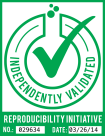CD4 anticorps (AA 385-457)
-
- Antigène Voir toutes CD4 Anticorps
- CD4
-
Épitope
- AA 385-457
-
Reactivité
- Humain, Souris, Rat, Poulet, Porc
-
Hôte
- Lapin
-
Clonalité
- Polyclonal
-
Conjugué
- Cet anticorp CD4 est non-conjugé
-
Application
- Flow Cytometry (FACS), Western Blotting (WB), ELISA, Immunohistochemistry (Frozen Sections) (IHC (fro)), Immunohistochemistry (Paraffin-embedded Sections) (IHC (p)), Immunofluorescence (Cultured Cells) (IF (cc)), Immunofluorescence (Paraffin-embedded Sections) (IF (p))
- Réactivité croisée
- Poulet, Humain, Souris, Porc, Rat
- Homologie
- Dog,Cow,Sheep,Guinea Pig
- Purification
- Purified by Protein A.
- Immunogène
- KLH conjugated synthetic peptide derived from Human CD4 (cytoplasmic domain)
- Isotype
- IgG
-
-
- Indications d'application
-
WB 1:300-5000
ELISA 1:500-1000
FCM 1:20-100
IHC-P 1:200-400
IHC-F 1:100-500
IF(IHC-P) 1:50-200
IF(IHC-F) 1:50-200
IF(ICC) 1:50-200 - Restrictions
- For Research Use only
-
- by
- Confocal Imaging Core, Beth Israel Deaconess Medical Center
- No.
- #029634
- Date
- 26.03.2014
- Antigène
- Numéro du lot
- 130703
- Application validée
- Immunohistochemistry
- Contrôle positif
- Mouse spleen tissue
- Contrôle négative
- Mouse muscle tissue
- Conclusion
- Signal was detected in positive control sample and not in negative control sample.
- Anticorps primaire
- Antibody: CD4 Molecule (CD4)
- Catalog number: ABIN671376
- Lot number: 130703
- Anticorps secondaire
- Antibody: Donkey anti-Rabbit IgG Antibody (Biotinylated)
- Full Protocol
- Immunohistochemistry was performed manually.
- Sections were deparaffinized and rehydrated.
- Sections were heated to 98°C for 10 min in 0.1M Borate buffer with 1 mM NaCl and 1 mM EDTA pH 8.0 for antigen retrieval.
- Sections were incubated in 3% hydrogen peroxide for 10 min at room temperature to block endogenous peroxidases.
- Sections were washed x 3 in Tris buffered saline (TBS).
- Sections were blocked in 5 % normal donkey serum for 60 min at room temperature.
- Sections were incubated with primary antibody diluted 1:200 in 5% normal donkey serum in TBS. Incubated at 4°C temperature overnight.
- Sections were washed x 3 in Tris buffered saline.
- Sections were incubated with secondary antibody diluted 1:400 in 5% normal donkey serum in TBS. Incubated for 60 min at room temperature..
- Sections were washed x 3 in Tris buffered saline.
- Sections were incubated with Vectastain ABC kit (Vector Lab PK6100) to enhance signal.
- Sections were incubated with DAB chromogenic substrate (Vector Lab SK-4105) for 60 sec at RT.
- Sections were washed x 3 in Distilled Water.
- Sections were counterstained with hematoxylin for 20 sec.
- Sections were washed x 1 in Distilled Water.
- Sections were dehydrated, mounted and photographed under a Zeiss AxioImager M1 light microscope.
- Notes
- - No experimental challenges noted.
Validation #029634 (Immunohistochemistry)![Testé avec succès 'Independent Validation' signe]()
![Testé avec succès 'Independent Validation' signe]() Validation ImagesProtocole
Validation ImagesProtocole -
- Format
- Liquid
- Concentration
- 1 μg/μL
- Buffer
- 0.01M TBS( pH 7.4) with 1 % BSA, 0.02 % Proclin300 and 50 % Glycerol.
- Agent conservateur
- ProClin
- Précaution d'utilisation
- This product contains ProClin: a POISONOUS AND HAZARDOUS SUBSTANCE, which should be handled by trained staff only.
- Stock
- 4 °C,-20 °C
- Stockage commentaire
- Shipped at 4°C. Store at -20°C for one year. Avoid repeated freeze/thaw cycles.
- Date de péremption
- 12 months
-
-
: "Reolysin and Histone Deacetylase Inhibition in the Treatment of Head and Neck Squamous Cell Carcinoma." dans: Molecular therapy oncolytics, Vol. 5, pp. 87-96, (2017) (PubMed).
: "Bone morphogenetic protein 7 is associated with the nodal invasion of colon cancer." dans: Oncology letters, Vol. 11, Issue 3, pp. 1707-1712, (2016) (PubMed).
: "Does prolonged post-mortem cold ischemic harvesting time influence cryopreserved pulmonary homograft tissue integrity?" dans: Cell and tissue banking, (2015) (PubMed).
-
: "Reolysin and Histone Deacetylase Inhibition in the Treatment of Head and Neck Squamous Cell Carcinoma." dans: Molecular therapy oncolytics, Vol. 5, pp. 87-96, (2017) (PubMed).
-
- Antigène
- CD4
- Autre désignation
- CD4 (CD4 Produits)
- Synonymes
- anticorps cd4, anticorps L3T4, anticorps Ly-4, anticorps CD4mut, anticorps W3/25, anticorps p55, anticorps CD4 molecule, anticorps carcinoembryonic antigen-related cell adhesion molecule 5, anticorps T-cell surface glycoprotein CD4, anticorps CD4 antigen, anticorps Cd4 molecule, anticorps CD4, anticorps LOC100125525, anticorps cd4, anticorps Cd4
- Sujet
-
Synonyms: T-cell surface glycoprotein CD4, Cd4, T-cell surface antigen T4/Leu-3, W3/25 antigen
Background: Integral membrane glycoprotein that plays an essential role in the immune response and serves multiple functions in responses against both external and internal offenses. In T-cells, functions primarily as a coreceptor for MHC class II molecule:peptide complex. The antigens presented by class II peptides are derived from extracellular proteins while class I peptides are derived from cytosolic proteins. Interacts simultaneously with the T-cell receptor (TCR) and the MHC class II presented by antigen presenting cells (APCs). In turn, recruits the Src kinase LCK to the vicinity of the TCR-CD3 complex. LCK then initiates different intracellular signaling pathways by phosphorylating various substrates ultimately leading to lymphokine production, motility, adhesion and activation of T-helper cells. In other cells such as macrophages or NK cells, plays a role in differentiation/activation, cytokine expression and cell migration in a TCR/LCK-independent pathway. Participates in the development of T-helper cells in the thymus and triggers the differentiation of monocytes into functional mature macrophages.
- ID gène
- 24932
- UniProt
- P01730
- Pathways
- TCR Signaling, Maintenance of Protein Location, CXCR4-mediated Signaling Events
-

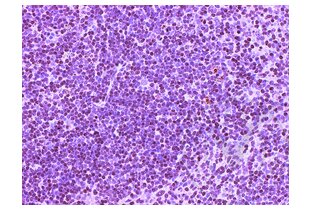
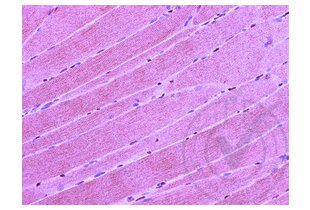
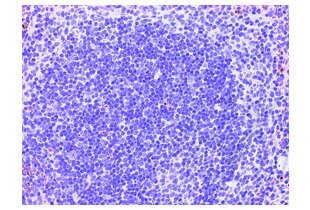
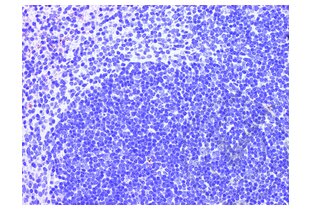
 (4 références)
(4 références) (1 validation)
(1 validation)